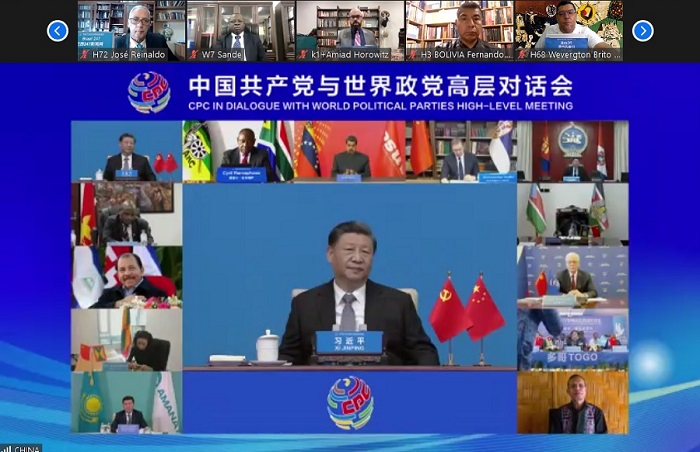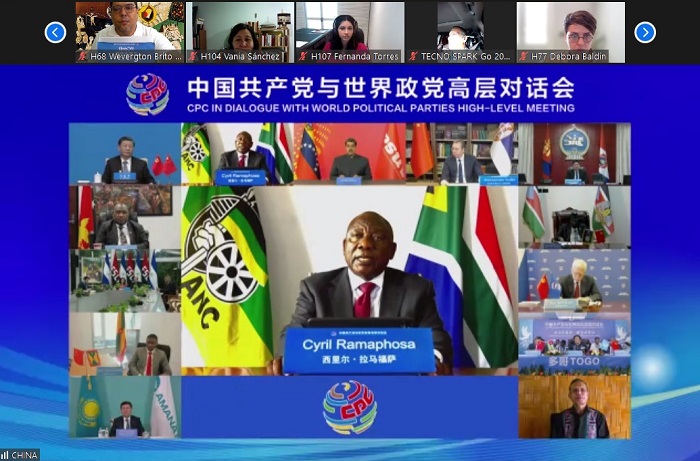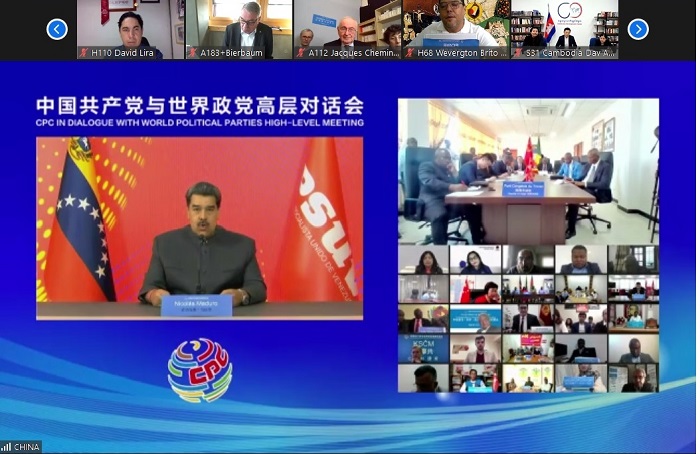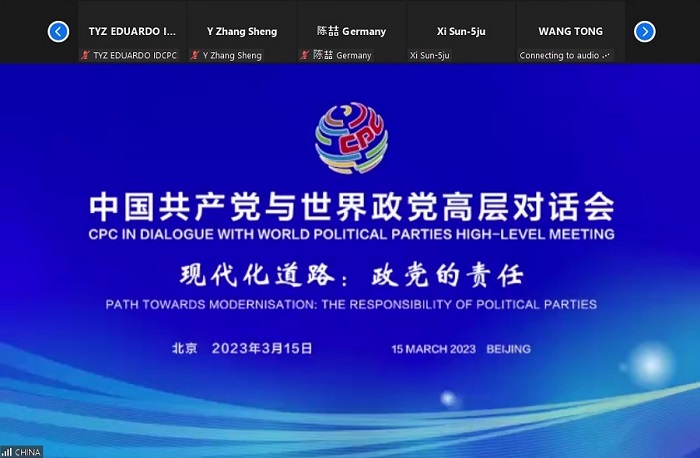
Published 03/15/2023 17:43 | Edited 03/16/2023 17:27
The meeting, opened by the President of the People’s Republic of China and Secretary General of the CPC, Xi Jinping, was attended by 630 guests representing more than 500 parties and organizations from 150 countries, according to data from the organization of the event. At least ten heads of state and government participated and spoke.
Xi Jinping opened the Dialogue with a short but content-rich speech. By the way, it should be noted that discipline over time, whose example of Xi Jinping is didactic, draws attention. In an event of such magnitude, the start time: 9 am in Brazil, and the end time: 12 noon, was strictly respected.
Xi Jinping: In Defense of Spring
The main Chinese leader stated that Chinese modernization is designed to develop in a world marked by cooperation between peoples, by respect for the sovereign choice of each country for its model of development and democracy, by the equal subordination of all countries to international law. and by sharing the fruits of development. A peaceful world, for Xi Jinping, is only possible with shared development. “One flower does not mean spring. Only when many flowers bloom does the garden become colorful.”, said the Chinese leader.
Broad support for the CCP’s theses

The meeting revealed broad support for the theses defended by the CCP. Theses that, presented in a lofty manner and with great plastic skill, clearly reveal an anti-imperialist content. Shortly after Xi Jinping, Cyril Ramaphosa, President of South Africa and Secretary General of the African National Congress (ANC), spoke. Ramaphosa congratulated Xi Jinping on the recent unanimous re-election as President of China, at the 14th Session of the National People’s Congress, and expressed South Africa’s commitment to the theses of the Shared Future for Humanity and the construction of a world marked by multilateralism. This was, in fact, the keynote of all the leaders who spoke below, such as Nicolás Maduro, president of the Bolivarian Republic of Venezuela and president of the Unified Socialist Party of Venezuela (PSUV), who also stressed the gratitude of the Venezuelan people for the support received of China during the siege (which remains) of the US. The president of Nicaragua, Daniel Ortega, commander of the Sandinista National Liberation Front (FSLN), also highlighted the importance of putting an end to the era in which hegemonic powers dictate rules and models, stressing that Nicaragua has an anti-imperialist orientation.
Presence of high-level delegations from all continents

In addition to those already mentioned, the President of Serbia, Aleksandar Vučić, took the floor; Mongolian President Ukhnaagiin Khürelsükh; the Prime Minister of Papua New Guinea, James Marape; South Sudanese President Salva Kiir Mayardit; the Prime Minister of Grenada, Keith Mitchell; the Prime Minister of East Timor, Taur Matan Ruak, a representative of the United Russia Party, among many other party leaders and leaders. Some who attended the Dialogue were not among the speakers, including Evo Morales, former president of Bolivia and president of the Movement to Socialism (MAS) party, but remained throughout the event.
Chinese modernization has a concrete goal and will continue to improve the way

The vice-chancellor of the CPC school highlighted in his speech that Chinese modernization, from the internal point of view, aims to reach a per capita GDP by 2035 that is at the same level as a medium-level developed country. For this, China will invest heavily in innovation, research and science. The meeting was closed by the first secretary of the CPC Secretariat and member of the Political Bureau Standing Committee, Cai Qi, who underscored his determination to continue improving, together with friendly parties, the path towards Modernization.
Brazil’s participation
The Communist Party of Brazil (PCdoB) participated with a large delegation led by comrade Ana Prestes, Secretary of International Relations of the CC, and composed by Nivaldo Santana (Union Secretary of the CC and member of the International Relations Commission), Nilson Araújo de Sousa ( member of the CC and of the International Relations Commission), Socorro Gomes (member of the CC and of the International Relations Commission), Amanda Harmury (International Relations Commission), Iago Montalvão (International Relations Commission and UJS), Moara Crivelente (International Relations Commission), International Relations), Pedro Oliveira (International Relations Commission), Raul Carrion (International Relations Commission) and Wevergton Brito (International Relations Commission). José Reinaldo Carvalho, member of the PCdoB Central Committee, participated in the event as international editor of the Brazil 247.
The Workers’ Party was represented by Romênio Pereira (PT’s IR), Mônica Valente (Executive Secretary of the São Paulo Forum) and Débora Baldin (PT’s IR team). The Brazilian Communist Party (PCB) was present through Eduardo Serra, Secretary of International Relations and Luis Acosta, member of the IR Commission.
Source: vermelho.org.br

